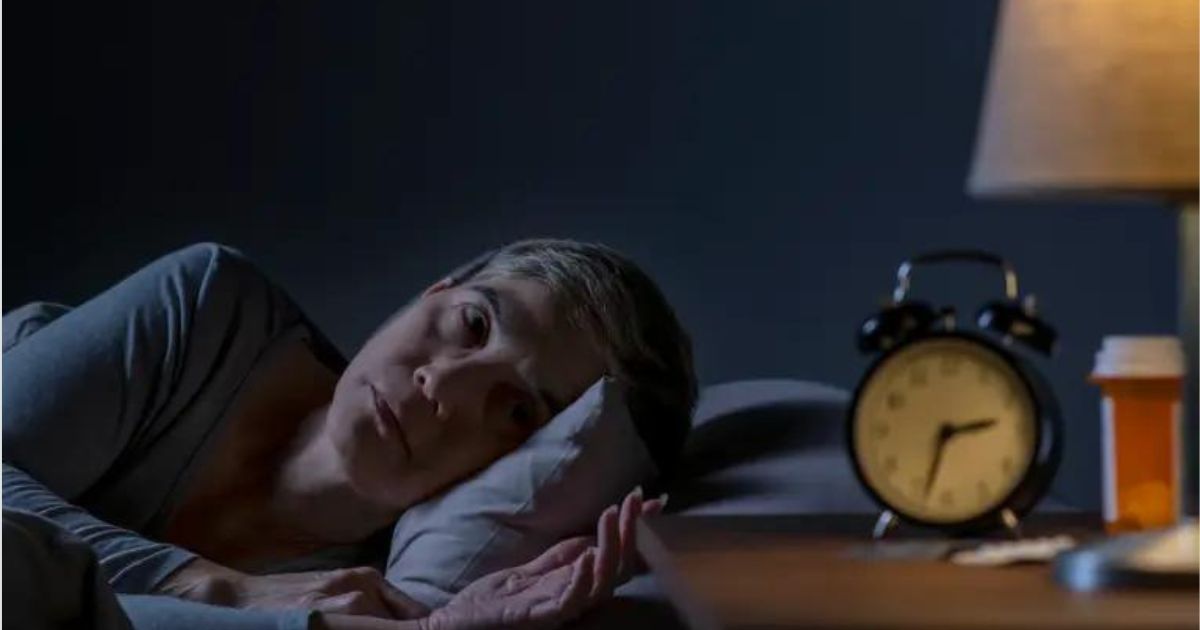In the silent hours of the night, the struggle to fall back asleep after waking up can be a familiar torment. Recent insights from the Centers for Disease Control and Prevention (CDC) shed light on the widespread issue of insomnia, affecting more than 17% of adults who grapple with staying asleep most days or every day of the past month.
In this report, sleep expert Dr. Biquan Luo explores the reasons behind nocturnal awakenings and provides expert recommendations to navigate the challenges of interrupted sleep
Understanding the Sleep Struggle:
The toll of insomnia on the following day is well-known to anyone who has experienced the frustration of waking up in the middle of the night. Dr. Biquan Luo, a San Francisco sleep expert and CEO of LumosTech, reveals that various factors contribute to these sleep disruptions, including stress, anxiety, discomfort, pain, and environmental disturbances such as noise, movement, or temperature extremes.
Sleep disorders like sleep apnea and restless leg syndrome are additional culprits, emphasizing the multifaceted nature of nocturnal awakenings.
Disruption of the body’s natural sleep-wake cycle can result in fragmented sleep, according to Dr. Luo. The consequences extend beyond the restless night, impacting the overall well-being of individuals who find themselves grappling with insomnia.
Expert Recommendations:
Dr. Luo offers practical advice for those facing the challenge of waking up in the middle of the night. When it happens, staying in bed and attempting to relax is the initial recommendation. Techniques such as progressive relaxation, breathing exercises, and the use of white noise machines can help induce a sense of calm conducive to falling back asleep.
If sleep remains elusive after 10 or 15 minutes, Dr. Luo suggests getting out of bed and engaging in a low-stimulation activity in a quiet, comfortable space until drowsiness returns, at which point returning to bed is recommended.
Avoiding Common Mistakes:
The impulse to check the clock or reach for the phone during sleep interruptions is a common mistake that Dr. Luo advises against. Checking the time not only increases stress but also makes it harder to return to sleep.
The stimulating content on a phone can further hinder relaxation, emphasizing the need to resist the urge to engage with electronic devices during these nocturnal interruptions.
Internal Clocks and Circadian Signaling:
Understanding the body’s internal clock is crucial when addressing midnight awakenings. Dr. Luo explains that sleep is governed by two key factors: sleep pressure, the body’s need for rest, and circadian signaling, the internal clock that plays a role in maintaining sleep. If sleep pressure diminishes before the circadian signal fully kicks in, it can lead to waking up at night.
Dr. Luo encourages individuals unsure about their nocturnal awakenings to explore adjusting their internal clocks to minimize interruptions.
Strategies for Circadian Rhythm Adjustment:
To align the internal clock with sleep schedules, Dr. Luo recommends adopting practices such as waking up at the same time daily, timed exposure to bright light, adjusting meal times, taking melatonin supplements, varying exercise times, and consuming moderate amounts of caffeine in the morning.
These adjustments, suggested by the Sleep Foundation, aim to enhance the synchronization between sleep pressure and circadian signaling, potentially reducing disruptions during the night.
As the night becomes a battleground for those struggling with interrupted sleep, experts like Dr. Biquan Luo offer valuable insights and practical strategies.
This report serves as a guide for individuals seeking to understand and address the complexities of midnight wake-ups, emphasizing the importance of adopting healthy sleep habits and making informed choices to foster restful nights and productive days.







Leave a Reply